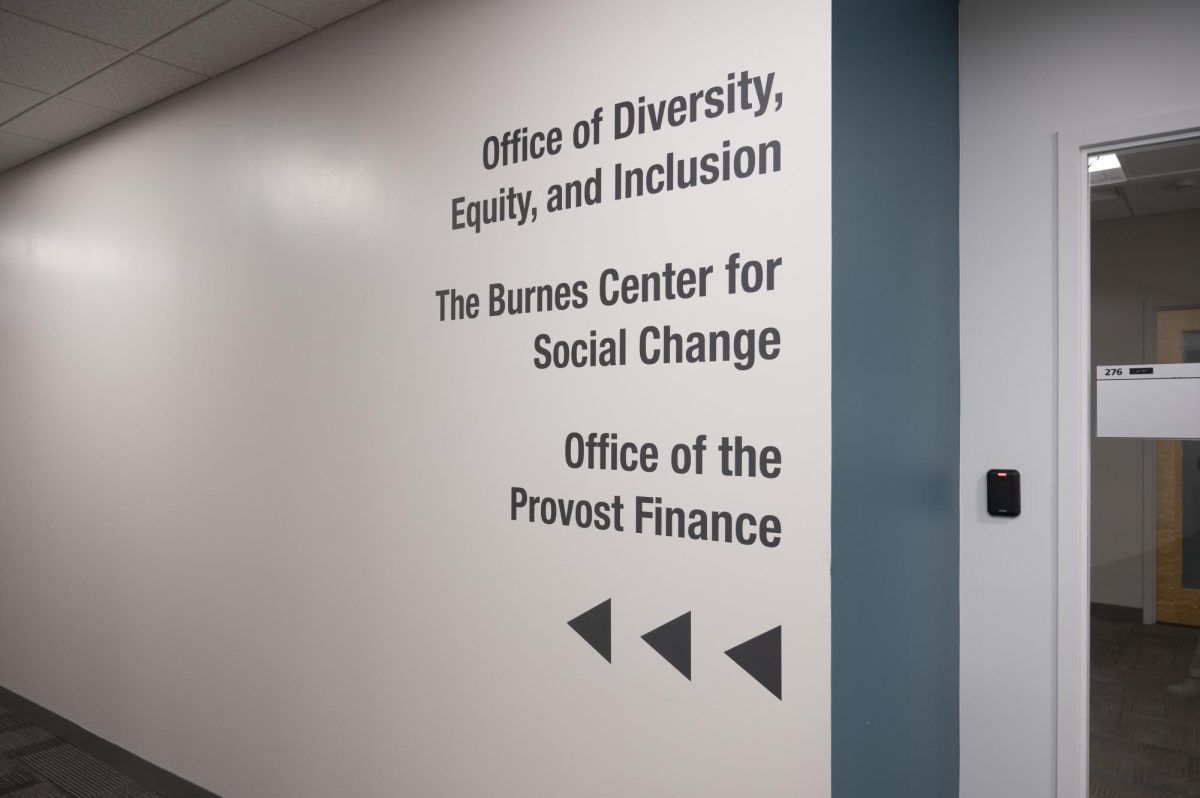Whether from a friend’s text, on social media or through word of mouth, Northeastern students recently became aware of the university’s first outward-facing changes caused by President Donald Trump’s recent election: the near-elimination of Northeastern’s diversity, equity and inclusion, or DEI, websites and messaging.
“Things that seemed impossible are happening,” said Jill Zerkowski, a fourth-year biochemistry major. “To actually be seeing these things roll out is quite horrifying.”
Zerkowski is concerned that more students won’t hear about Northeastern’s changes and said that “Complacency breeds contempt.”
The changes came in response to Trump’s Jan. 21 executive order that terminated “illegal” DEI programs at “institutions of higher education with endowments over 1 billion dollars,” which includes Northeastern.
Since Trump’s inauguration Jan. 20, he has signed a slew of executive orders targeting, among other things, climate change policy, immigration and DEI programs. Within the Northeastern community and in Massachusetts, a state that has voted blue since the 1984 presidential election, these changes have been met with shock.
“I’m questioning what this means for me as a Northeastern student going forward, or just me as a resident of Boston going forward because I thought we were protected,” said Kelecia Myers, a second-year criminal justice and psychology combined major. “I really thought that Massachusetts was a protected state.”
In response to the series of executive orders, Northeastern published its “Navigating a New Political Landscape” FAQ Jan. 30, which lays out its response to Trump administration orders that may threaten members of the community, including international students and faculty conducting research.
In the FAQ’s “Belonging” section, the university referred to the language change as a “reimagined approach.”
“We have an obligation to the entire Northeastern community – and to society as a whole – to make sure our work can continue,” the FAQ reads. “Failing to comply with the law could jeopardize student financial aid and federally funded research across a range of disciplines and projects.”
As of Feb. 11, all ten of Northeastern’s schools and colleges have removed their DEI websites, either changing the wording to “Belonging at Northeastern” or taking down the page altogether.
Venkat Ayalavarapu, a third-year behavioral neuroscience major, wasn’t confused when he heard the news, but he was disappointed.
“I hope that the Northeastern, mainly the student community, understands that it’s up to us to make this place feel safe for people who might be affected by this or who might feel affected by this,” Ayalavarapu said. “But at the end of the day, we’re realizing that our school doesn’t really care as much.”
Dashiell Davis, a second-year international affairs and international business combined major, said he wants to see Northeastern develop an alternative plan for DEI.
“I don’t know if we’re going to see any immediate effects, really. I think it might be more long-term effects just with new bodies of students coming into Northeastern,” Davis said of the impact he expects Trump’s policies will have.
All of the students who spoke with The Huntington News said they hope to see change from the university and the student community.
“I hope people actually start to realize what’s going on because although it’s quiet, moves are being made behind our backs and I hope that we all start to wake up and realize that we have to be the change we’re seeking,” Myers said.
Sean Odom, a fourth-year business administration major and the vice president of the Northeastern Black Student Association, sees the takedown of Northeastern’s DEI websites as a larger issue the university will have to reckon with.
“What it signifies to me is lack of care and lack of prioritization, because I think that now this gives leeway to underrepresented communities being ignored,” Odom said. “That allows for more violence to happen, that allows for lack of resources to be allocated to certain places, that allows for less enrollment.”












